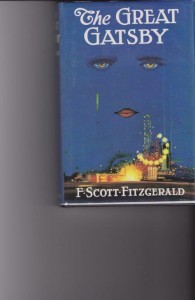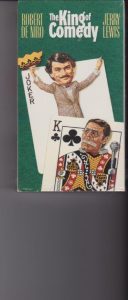(two masterpieces: Welles’ best film and Fitzgerald’s best book–both the best works, respectively in their genres–about the American Dream, about imperfect larger-than-life human beings, about the price of fame, about personal integrity vs. public response, about im/balanced perspectives re. character and life-story assessment and opinion)
There is always going to be sniping, criticism, and nastiness in comments and opinions about others, even of the nicest and greatest people, for the rest of time.
I was just reading about a new book by Bette Davis’s young companion late in life, as she reveals what Davis was like in private life. Not exactly a thoroughly bitter Mommy Dearest trashing memoir which Joan Crawford got from her daughter. Hey, nobody’s perfect, not even the stars or the rich for sure. But to put these public figures with clay feet on a similar plane as the big losers and dopes like Trump or Anthony Weiner shows a lack of perspective and common sense-based judgement.
It was Orson Welles’s masterpiece Citizen Kane, which was itself a takeoff on millionaire-tycoon William Randolph Hearst, that illustrated the obsession with fault-finding and criticism of others better than any other film I can think of. (For a literary parallel, try F. Scott Fitzgerald’s The Great Gatsby, in which narrator Nick’s views contrast with those of others offered by other characters of Gatsby.) Fitzgerald and Welles both skewered popular notions and fault-finding of human nature beautifully and accurately.
No, as in Citizen Kane, a person’s life is made up of many facets and episodes which reveal different aspects of character and personal values. Often “the evil that men do lives after them,/The good is oft interred with their bones.” (Julius Caesar) And hence, the ambiguous reputations of many controversial historical and political figures, even populat entertainer greats like Sinatra and Presley.
Which brings me to the recent news about Jerry Lewis leaving his six sons by his first (divorced) wife out of his will. His wife and sons had trashed him at various times; why should he leave them a dime of his hard-earned fortune? Lewis is being turned into an ogre as myriad trolls turn their backs on the billions he relentlessly and altruistically raised for charity. Now I’d be the first to admit that his approaches were schmaltzy and there may have been some ego-aggrandizing–this was Jerry Lewis after all. But even the charity folks are criticizing him for being used by him. Give me a break! How easy and conveniently have these ignorant types turned their backs on the guy who did so much for their causes and for less-fortunate humanity.
But that is the nature of human beings, (as both Welles and Fitzgerald pointed out), to which I would add the title of a famous old blues song–“Nobody loves you when you’re down and out.” People and fans are that fickle, that unfair, that unkind, that mean, that ungenerous when it suits their nasty personal agendas and limited knowledge and appreciation.
The times are such that this lack of perspective and balance in judgement and appreciation of others has worsened considerably and is more prevalent than ever. Integrity goes largely unappreciated these daze. Kindness, charity, good characteristics, and best behaviors, acts, and actions are automatically disparaged and flushed down the memory hole with the snap of a finger or a single-finger Send.
I have long been a fan of reason, personal integrity, and the good and great individuals, works, and deeds that have helped mankind and move civilization and human behavior (human nature too) forward. But today we are mired in the current Age of Trolls and Dirt-Dishing Obsession. If there be the slightest whiff of clay feet, bad days, or the effects of non-pc culture on the good and the greats, then the results are very limitedly predictable.
O for an age of people capable of using civility, respect, common sense, clear-headed distinctions, and balanced perspective! O for an informed, educated public, not a bunch of ignorant phone-addicted dopes pseudo-authoritatively spouting off, all the while implausibly assuming or implying how perfect and flawless they are themselves.
Though I never liked his brand of comedy, I admire Lewis finally for his integrity, his humanitarian efforts, his film career recognition by the French (the U.S. film-world completely turned its back on him), and his riskiness for allowing himself to be directed in his best warts-and-all acting performance in Scorcese’s The King of Comedy. Scorcese, too, shows Lewis as he really was: an imperfect human being who had his share of good points and career successes, but could never please the trolls and crazies who lurk among us. Clearly another case of “A man/ More sinned against than sinning.” (King Lear)
(A Scorcese masterpiece–the VHS version; Jerry Lewis as late-night-tv-talk show host Jerry Langford gagged and trussed up–“a man/More sinned against than sinning”)



